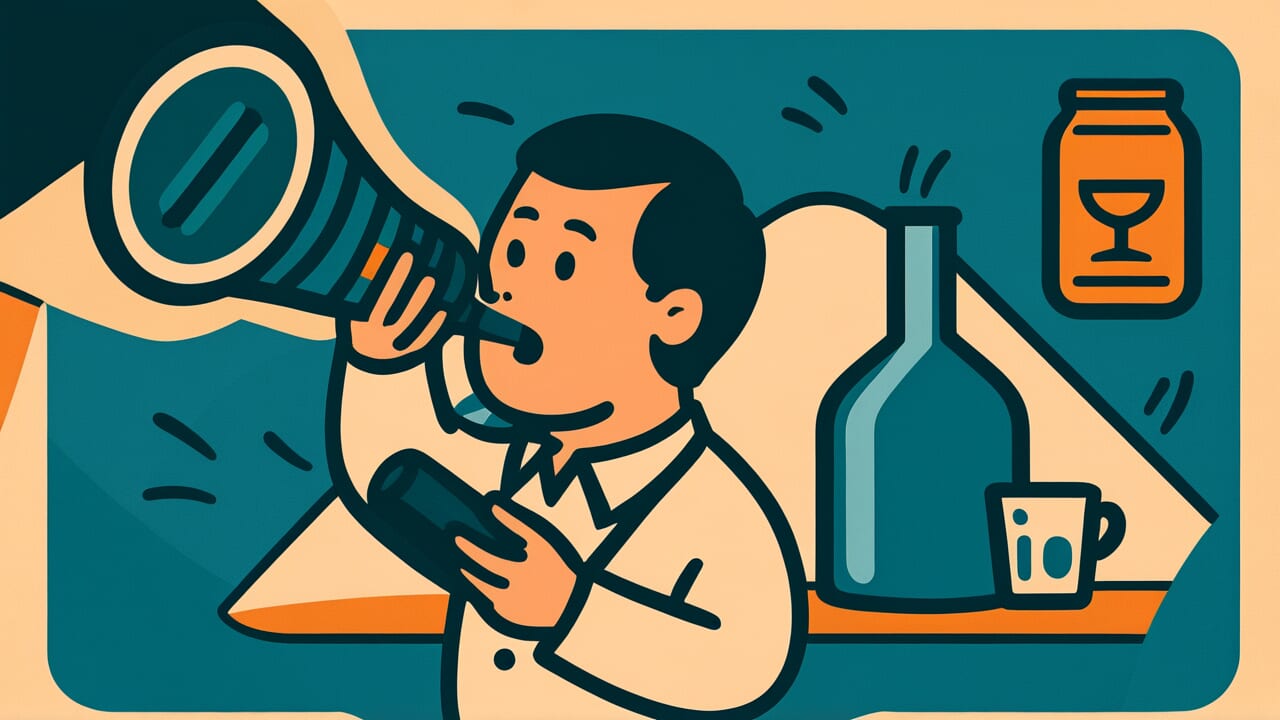How to Read “Blow first, and sip afterwards”
Blow first, and sip afterwards
[bloh furst, and sip AF-ter-wards]
All words use standard pronunciation.
Meaning of “Blow first, and sip afterwards”
Simply put, this proverb means you should test something carefully before diving in completely.
The saying comes from the practical act of drinking hot liquids. When you blow on hot soup or tea, you cool it down first. Then you take a small sip to check the temperature. Only after testing do you drink normally. This prevents burning your mouth or tongue.
The deeper message applies to many life situations. Before making big decisions, smart people gather information first. They might ask questions, do research, or try small experiments. This testing phase helps them avoid costly mistakes or painful surprises.
People use this wisdom when starting new jobs, relationships, or investments. Someone might work part-time before accepting a full-time position. Others take cooking classes before opening a restaurant. The idea is always the same: careful preparation leads to better outcomes than rushing ahead blindly.
Origin and Etymology
The exact origin of this proverb is unknown, though it appears in various forms across different cultures. The saying reflects universal human experience with hot food and drinks. Most early versions focus on the practical wisdom of testing temperature before consuming.
This type of cautionary saying became common during times when people cooked over open fires. Hot liquids could cause serious burns, making temperature testing essential for safety. Folk wisdom often turned these daily survival skills into broader life lessons about caution and preparation.
The proverb spread through oral tradition, passed down from parents to children. Over time, people began applying the literal advice about hot drinks to other situations requiring caution. The saying evolved from practical kitchen wisdom into general advice about approaching new experiences carefully and thoughtfully.
Interesting Facts
The word “sip” comes from Middle English and originally meant to drink in small quantities. This connects directly to the proverb’s message about taking small, careful tastes first.
Many languages have similar sayings that use hot food or drink as metaphors for caution. This suggests that the connection between testing temperature and testing life situations feels natural to humans across different cultures.
The proverb uses simple, everyday actions that everyone understands. This makes the wisdom easy to remember and apply to more complex situations.
Usage Examples
- Mother to child: “That cocoa just came off the stove – blow first, and sip afterwards.”
- Mentor to apprentice: “Don’t rush into that investment without research – blow first, and sip afterwards.”
Universal Wisdom
This proverb captures a fundamental survival mechanism that humans have developed over thousands of years. Our ancestors learned that rushing into unknown situations often led to harm, while careful testing increased chances of success. This cautious approach helped early humans survive dangerous environments and unpredictable circumstances.
The wisdom reflects how our brains naturally process risk and reward. When we encounter something new, our minds automatically try to predict outcomes based on limited information. The “blow first” approach gives us more data before making irreversible commitments. This extra information helps our decision-making systems work more effectively and reduces the chance of serious mistakes.
What makes this proverb universally relevant is its recognition of human impatience. We often want immediate results or instant gratification, but reality rarely works that way. The saying acknowledges this tension between our desires and practical wisdom. It suggests that the temporary delay of testing actually leads to better long-term satisfaction. This pattern appears in everything from learning new skills to building relationships, making the ancient advice eternally useful.
When AI Hears This
Humans have turned waiting into a secret pleasure tool. When you blow on hot soup, your brain starts working differently. The delay makes you focus completely on what’s coming next. Your senses wake up during those few seconds of blowing. This tiny pause actually makes the first sip taste better than rushing would.
The waiting trick happens everywhere in human behavior. People naturally slow down right before good things happen. Your mind uses small delays to get ready for enjoyment. The brief pause lets your brain prepare for the best possible experience. Without knowing it, you’re training yourself to appreciate things more deeply.
This shows how smart human instincts really are. What looks like simple caution is actually pleasure engineering. Your brain figured out that tiny waits make rewards feel bigger. The few seconds of blowing create perfect conditions for maximum satisfaction. Humans accidentally discovered that patience multiplies joy rather than reducing it.
Lessons for Today
Living with this wisdom means developing patience with the testing process. Most people understand the logic of being careful, but applying it consistently requires practice. The challenge lies in recognizing when situations call for extra caution versus when quick action serves better. Learning to distinguish between these moments takes time and experience.
In relationships and work situations, this wisdom suggests starting with small commitments before making larger ones. Rather than viewing this as being overly cautious, it becomes a way of showing respect for both yourself and others involved. Testing allows everyone to adjust expectations and build trust gradually, creating stronger foundations for future cooperation.
The broader lesson involves accepting that good outcomes often require multiple steps rather than single dramatic actions. This perspective helps reduce the pressure to make perfect decisions immediately. Instead of fearing mistakes, the “blow first” approach treats initial attempts as valuable information gathering. This mindset makes it easier to stay calm under pressure and make thoughtful choices even when facing uncertainty or time constraints.



Comments